
The Timeless Charm of Old Montreal
Old Montreal, or Vieux-Montréal, is a beautiful blend of historical architecture and modern-day vibrancy. As you stroll through its cobblestone streets, you'll be transported back to the 17th century, yet surrounded by contemporary art galleries, chic boutiques, and bustling cafes. This neighborhood is a living museum, with buildings dating back to the origins of Montreal in the 1640s. One of the key attractions is the Notre-Dame Basilica, an awe-inspiring example of Gothic Revival architecture. Its stunning interior, featuring intricate wood carvings and a spectacular altar, leaves visitors spellbound. Nearby, the Old Port offers a plethora of activities. You can enjoy a serene boat ride on the St. Lawrence River, or for the more adventurous, zip-lining across the port provides thrilling views. Historical sites like the Pointe-à-Callière Museum, built on the city's foundations, offer deep dives into Montreal's past. The museum's archaeological remains give a palpable sense of the city's evolution from a French colony to a modern metropolis. Additionally, the Bonsecours Market, with its iconic silver dome, is a perfect spot for shopping local crafts and gourmet delights. When it comes to dining, Old Montreal doesn't disappoint. From high-end restaurants serving French cuisine to cozy eateries offering poutine and smoked meat sandwiches, there’s something to satisfy every palate. For a sweet treat, don’t miss out on the local patisseries, where you can indulge in fresh croissants and pastries. In the evening, the neighborhood transforms into a vibrant social scene. The historical buildings are illuminated, creating a picturesque setting for a night out. Whether you're enjoying a cocktail at a rooftop bar or taking a leisurely walk by the water, Old Montreal is enchanting at any hour.
Local tips in Old Montreal
- Wear comfortable shoes; the cobblestone streets can be uneven.
- Visit early in the morning or late in the evening to avoid crowds at popular spots like the Notre-Dame Basilica.
- Take a guided walking tour to gain insightful historical context.
- Stop by a local café for a break and enjoy people-watching.
The Timeless Charm of Old Montreal
Old Montreal, or Vieux-Montréal, is a beautiful blend of historical architecture and modern-day vibrancy. As you stroll through its cobblestone streets, you'll be transported back to the 17th century, yet surrounded by contemporary art galleries, chic boutiques, and bustling cafes. This neighborhood is a living museum, with buildings dating back to the origins of Montreal in the 1640s. One of the key attractions is the Notre-Dame Basilica, an awe-inspiring example of Gothic Revival architecture. Its stunning interior, featuring intricate wood carvings and a spectacular altar, leaves visitors spellbound. Nearby, the Old Port offers a plethora of activities. You can enjoy a serene boat ride on the St. Lawrence River, or for the more adventurous, zip-lining across the port provides thrilling views. Historical sites like the Pointe-à-Callière Museum, built on the city's foundations, offer deep dives into Montreal's past. The museum's archaeological remains give a palpable sense of the city's evolution from a French colony to a modern metropolis. Additionally, the Bonsecours Market, with its iconic silver dome, is a perfect spot for shopping local crafts and gourmet delights. When it comes to dining, Old Montreal doesn't disappoint. From high-end restaurants serving French cuisine to cozy eateries offering poutine and smoked meat sandwiches, there’s something to satisfy every palate. For a sweet treat, don’t miss out on the local patisseries, where you can indulge in fresh croissants and pastries. In the evening, the neighborhood transforms into a vibrant social scene. The historical buildings are illuminated, creating a picturesque setting for a night out. Whether you're enjoying a cocktail at a rooftop bar or taking a leisurely walk by the water, Old Montreal is enchanting at any hour.
Iconic landmarks you can’t miss
Vieux-Port de Montréal
Explore Montreal's historic waterfront: attractions, events, dining, and scenic views along the St. Lawrence River.
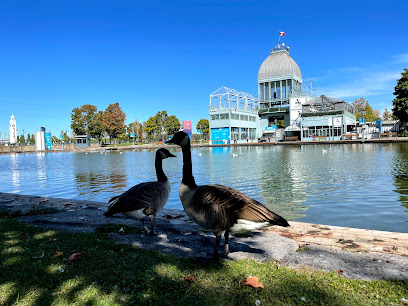
Notre-Dame Basilica of Montreal
Explore the breathtaking Notre-Dame Basilica, a historical gem in Montreal with stunning architecture and rich cultural heritage.
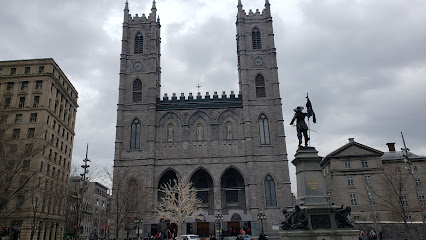
La Grande Roue de Montréal
Discover breathtaking views of Montreal and its iconic landmarks aboard La Grande Roue de Montréal, a cultural landmark and thrilling tourist attraction.
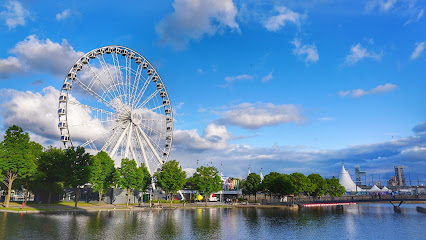
Notre-Dame-de-Bon-Secours Chapel
Explore the historical Notre-Dame-de-Bon-Secours Chapel in Montreal, a stunning blend of spirituality, art, and maritime heritage.
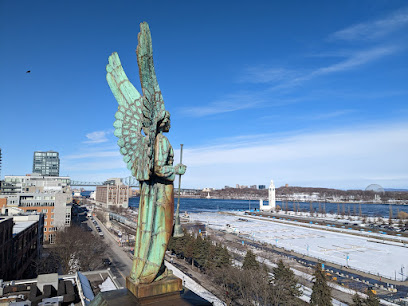
Place d’Armes
Discover the charm of Place d’Armes, a historical landmark in Montreal, surrounded by stunning architecture, local cuisine, and vibrant culture.
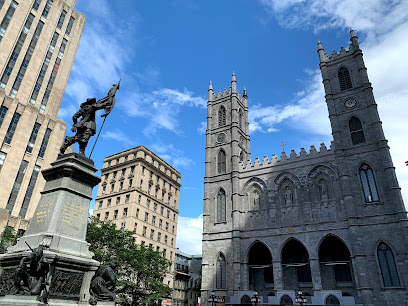
Place de la Grande-Paix-de-Montréal
Discover the vibrant cultural atmosphere of Place de la Grande-Paix-de-Montréal, a historical landmark perfect for relaxation, events, and local artistry.
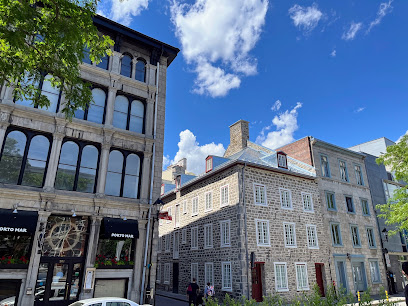
Le Vieux Montréal
Discover the historic allure of Le Vieux Montréal, where cobblestone roads meet stunning architecture in a vibrant cultural hub.
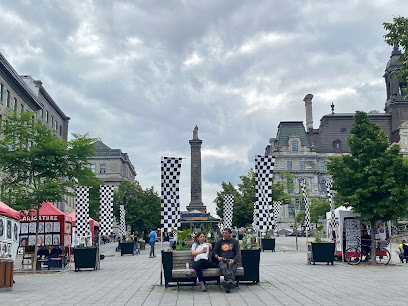
Monument to Paul de Chomedey, Sieur de Maisonneuve
A historic monument in Old Montreal's Place d'Armes, honoring Paul de Chomedey, the founder of the city and its first governor.
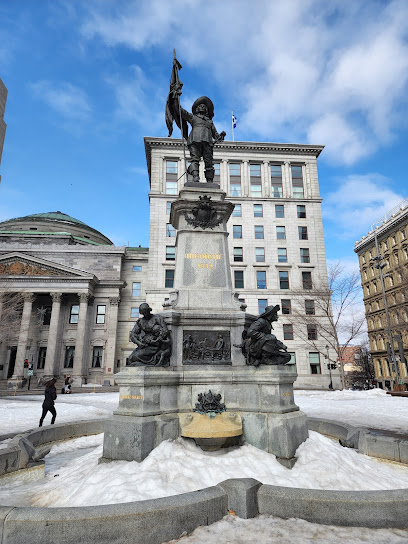
Lieu historique national de Sir-George-Étienne-Cartier
Step back into 19th-century Montreal and explore the meticulously restored home of a Father of Confederation.
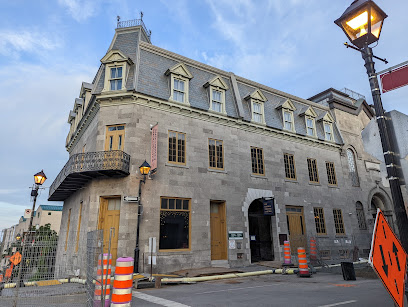
Place Jacques-Cartier
Discover the enchanting historic charm of Place Jacques-Cartier, a vibrant square in Old Montreal filled with culture, dining, and stunning architecture.
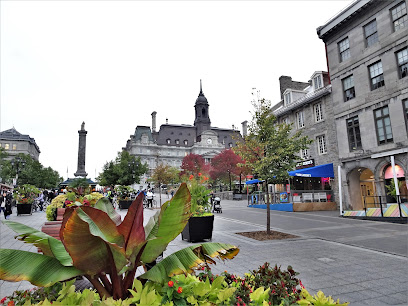
Old Montreal City
Discover the charm of Old Montreal: cobblestone streets, historic landmarks, and a vibrant European atmosphere await!
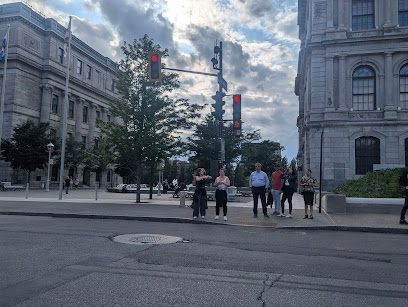
Montréal en Histoires
Discover the rich history of Montréal through captivating storytelling and interactive experiences at Montréal en Histoires.
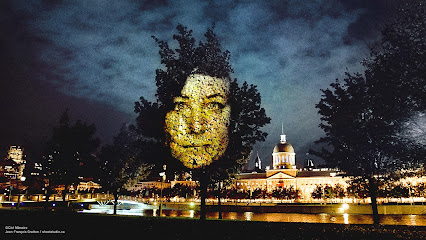
Montreal old architecture place
Explore the historic charm of Old Montreal, where centuries of architecture blend with modern vibrancy on cobblestone streets.
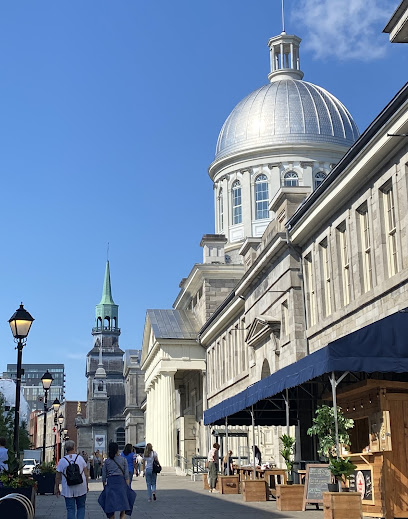
Unmissable attractions to see
Museum of Illusions Montréal
Discover a world of wonder at the Museum of Illusions Montréal, where reality bends and imagination reigns.

Port of Montreal Tower
Experience breathtaking views and rich maritime history at the iconic Port of Montreal Tower, a must-visit for every traveler in the city.
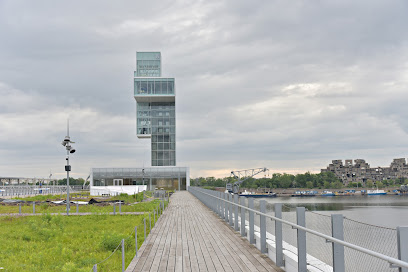
Montreal old architecture place
Explore the enchanting streets of Montreal's Old Architecture, where history, culture, and stunning visuals blend seamlessly.
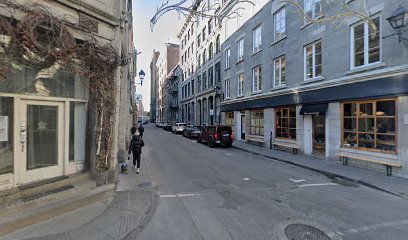
Walking Tour of Old Montreal
Explore the enchanting streets of Old Montreal, where history meets modern culture in a vibrant tourist attraction filled with unique experiences.
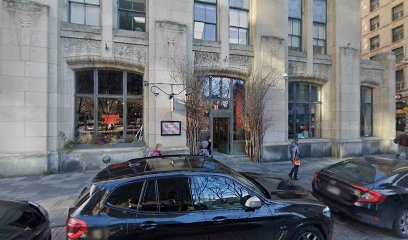
Essential places to dine
Modavie
Discover Modavie: A charming French bistro in Montreal offering exquisite cuisine paired with captivating live jazz music.
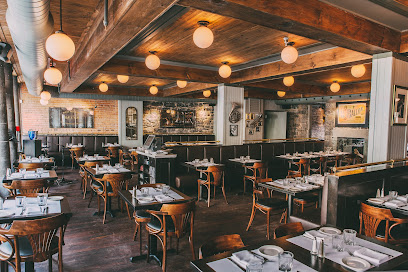
Maggie Oakes
Discover Maggie Oakes in Montreal: A vibrant restaurant offering exquisite seafood, steak, vegetarian dishes & craft cocktails amidst an inviting atmosphere.
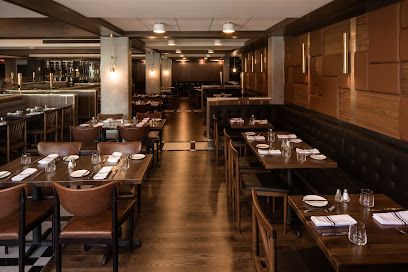
Jardin Nelson
Discover Jardin Nelson: A tranquil dining oasis in Montreal featuring exquisite cuisine surrounded by nature's beauty.
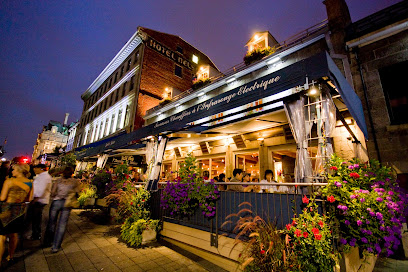
L'Usine de Spaghetti
Experience authentic Italian cuisine at L'Usine de Spaghetti - where every dish tells a story of flavor and tradition in the heart of Montreal.
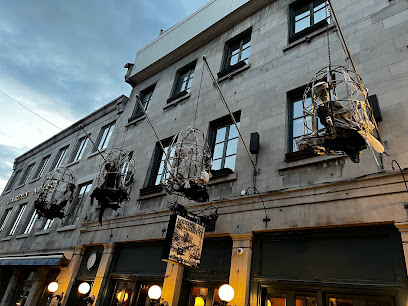
Stash Café
Discover authentic Polish cuisine at Stash Café in Montreal's Ville-Marie borough – where tradition meets taste in every delightful dish.
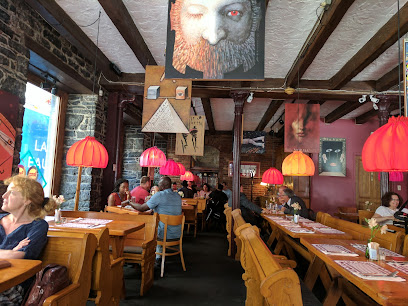
Gaspar Brasserie Française
Discover the essence of French dining at Gaspar Brasserie Française – where exquisite cuisine meets lively ambiance in Montreal.
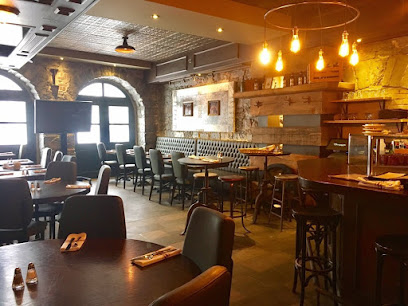
Holder
Experience exquisite French cuisine at Holder in Montreal - where culinary art meets elegant ambiance for an unforgettable dining experience.
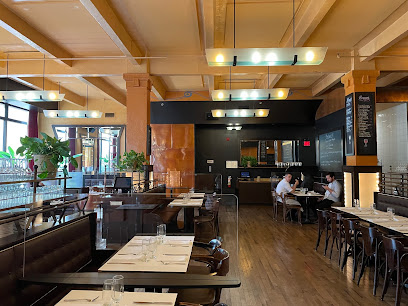
Garde Manger
Experience the best of Canadian seafood at Garde Manger in Montreal - where culinary artistry meets vibrant atmosphere.
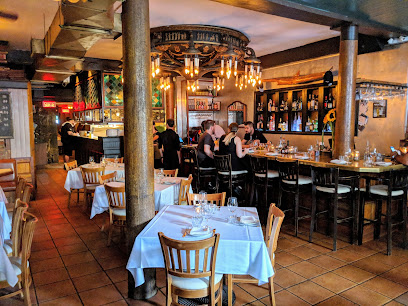
BARROCO
Savor authentic Catalonian cuisine and innovative cocktails at Barroco, a premier European restaurant in Montreal's vibrant culinary scene.
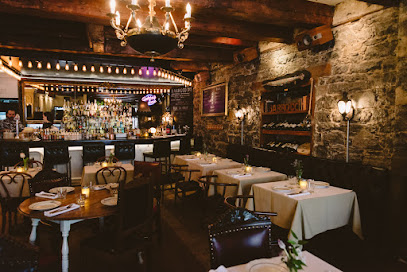
Restaurant L'Orignal
Indulge in the best of Canadian cuisine at Restaurant L'Orignal, where tradition meets innovation in a cozy Montreal setting.
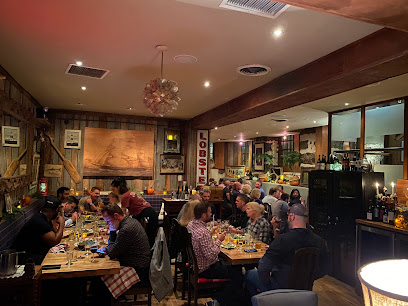
Markets, malls and hidden boutiques
Bonsecours Market
Experience the vibrant shopping, rich history, and cultural events at Bonsecours Market in the heart of Montreal.
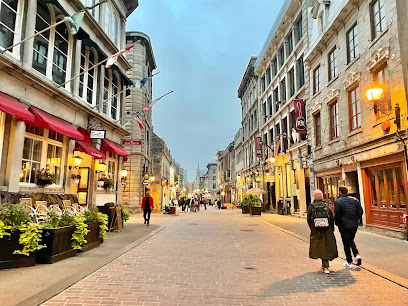
Souvenir du Québec
Discover the essence of Quebec with unique souvenirs and artisanal treasures at Souvenir du Québec in Montreal.
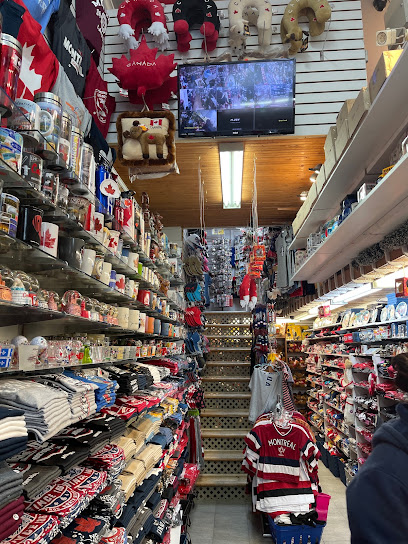
FANABOX
Explore FANABOX in Montreal: your destination for unique gifts, children's clothing, collectibles, and local treasures that capture the essence of Quebec.
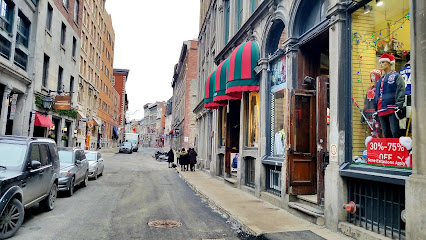
Feline
Explore Feline in Old Montreal for unique and stylish clothing that captures the heart of local fashion.
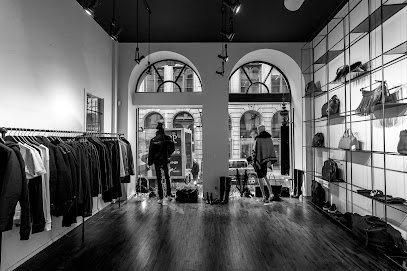
Le Magasin Général du Vieux-Montréal
Explore Le Magasin Général du Vieux-Montréal, your destination for unique gifts, local crafts, and stylish accessories in the heart of Old Montreal.
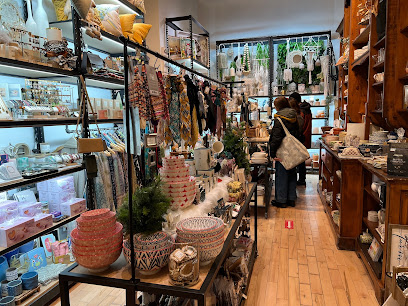
L'empreinte coopérative
Discover unique gifts and local artistry at L'empreinte coopérative, a charming gift shop in the heart of Old Montreal.
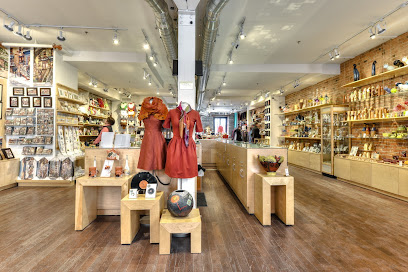
Boutique Lotus
Discover Boutique Lotus in Montreal: an artistic clothing store blending fashion, home goods, and unique jewelry for an unforgettable shopping experience.
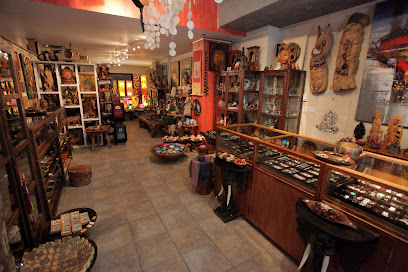
KURIOSITY
Explore KURIOSITY in Montreal - your go-to destination for unique gifts, local crafts, and memorable souvenirs.
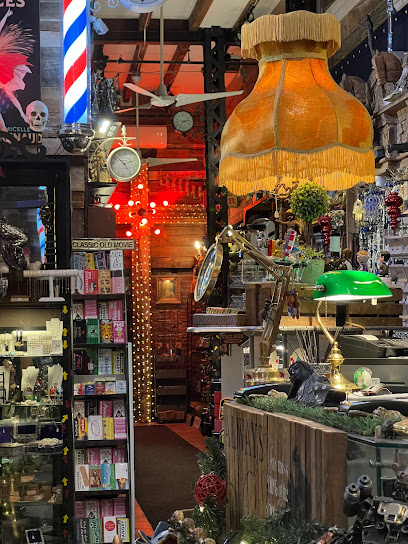
Souvenirs - Galerie du Souvenirs - Pokemon Collectables - Joke T-Shirts - Hoodies
Explore Galerie du Souvenirs in Montreal for a unique shopping experience filled with Pokémon collectibles, joke t-shirts, and delightful gifts for everyone.
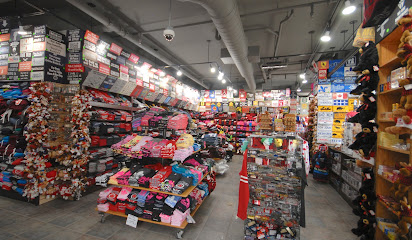
La Boutique Boreale
Explore La Boutique Boreale for unique gifts and souvenirs that celebrate the vibrant culture and artistry of Quebec.
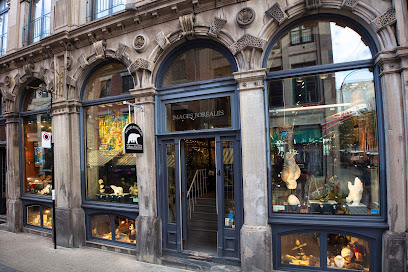
Essential bars & hidden hideouts
BreWskey Pub
Discover the essence of Montreal's craft beer scene at BreWskey Pub, where delightful brews meet delicious eats in a vibrant atmosphere.
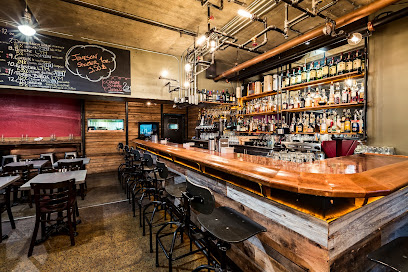
Pub Wolf & Workman
Discover the vibrant atmosphere and delicious offerings at Pub Wolf & Workman, a must-visit pub in the heart of Montreal.
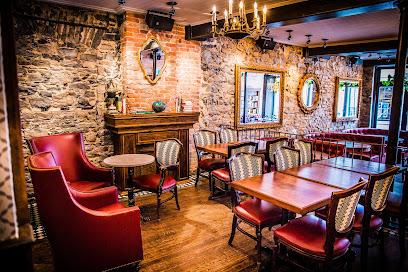
The Coldroom
Discover the allure of The Coldroom, Montreal's premier cocktail bar known for its innovative drinks and captivating atmosphere.
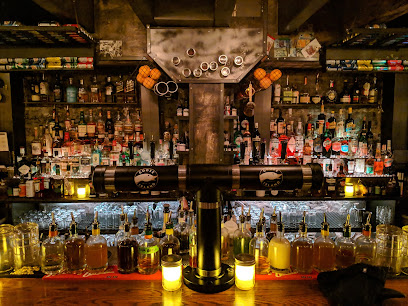
Pub Saint Pierre
Discover the lively ambiance of Pub Saint Pierre in Montreal, where delicious cuisine meets a vibrant nightlife experience.
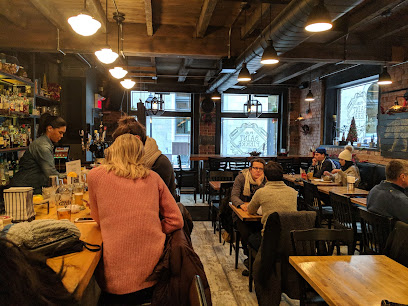
Cloakroom Bar
Uncover the exquisite cocktails and cozy charm of Cloakroom Bar, Montreal's premier cocktail destination for an unforgettable night.
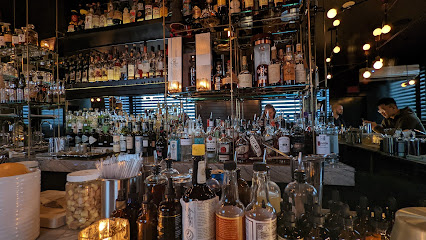
Philemon Bar
Discover the essence of Montreal nightlife at Philemon Bar, a stylish wine bar in Old Montreal, perfect for wine lovers and social gatherings.
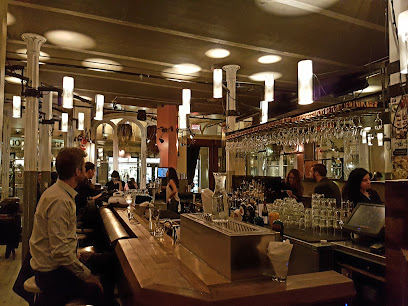
Clandestino
Discover Clandestino, Montreal's hidden cocktail bar offering an eclectic menu of innovative drinks and a vibrant atmosphere for your night out.
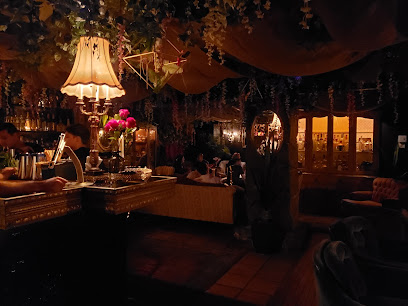
El Pequeño Bar
Experience the vibrant atmosphere of El Pequeño Bar, where Cuban culture meets exquisite cocktails in the heart of Montreal.
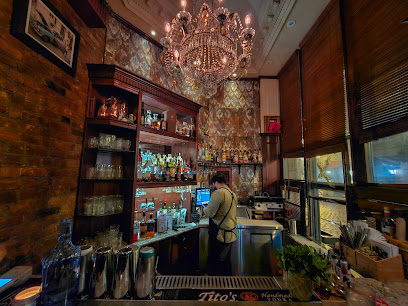
L'infâme Tittle Tattle - Cocktail Bar
Explore the vibrant cocktail scene at L'infâme Tittle Tattle, where unique flavors and a lively atmosphere await in the heart of Montreal.
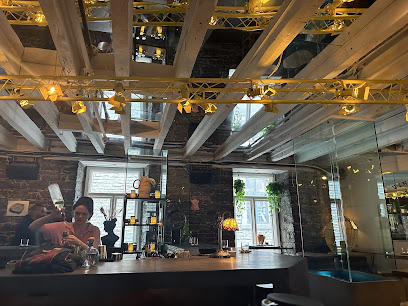
Bar Bisou Bisou
Discover the vibrant cocktail scene at Bar Bisou Bisou, Montreal's top destination for creative mixology and a lively atmosphere.
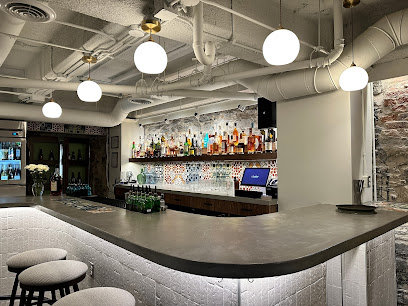
Local Phrases
-
- HelloBonjour
[bon-zhoor] - GoodbyeAu revoir
[oh ruh-vwahr] - YesOui
[wee] - NoNon
[nohn] - Please/You're welcomeS'il vous plaît/De rien
[seel voo pleh/duh ryehn] - Thank youMerci
[mehr-see] - Excuse me/SorryExcusez-moi/Désolé
[ehks-kew-zay mwah/deh-zoh-lay] - How are you?Comment ça va?
[koh-moh sah vah] - Fine. And you?Bien. Et toi?
[byen/eh twah] - Do you speak English?Parlez-vous anglais?
[par-lay voo ahn-glay] - I don't understandJe ne comprends pas
[zhuh nuh kohm-prahnd pah]
- HelloBonjour
-
- I'd like to see the menu, pleaseJe voudrais voir le menu, s'il vous plaît
[zhuh voo-dray vwahr luh meh-nyoo, seel voo pleh] - I don't eat meatJe ne mange pas de viande
[zhuh nuh mahnj pah duh vee-ahnd] - Cheers!Santé!
[sahn-tay] - I would like to pay, pleaseJe voudrais payer, s'il vous plaît
[zhuh voo-dray pay-yay, seel voo pleh]
- I'd like to see the menu, pleaseJe voudrais voir le menu, s'il vous plaît
-
- Help!Au secours!
[oh seh-koor] - Go away!Allez-vous en!
[al-lay vooz ahn] - Call the Police!Appelez la police!
[ah-peh-lay lah po-lees] - Call a doctor!Appelez un médecin!
[ah-peh-lay uh mayd-sanh] - I'm lostJe suis perdu
[zhuh swee pair-doo] - I'm illJe suis malade
[zhuh swee mah-lahd]
- Help!Au secours!
-
- I'd like to buy...Je voudrais acheter...
[zhuh voo-dray ah-shet-ay] - I'm just lookingJe regarde juste
[zhuh ruh-gard zhewst] - How much is it?Combien ça coûte?
[kohm-byen sah koot] - That's too expensiveC'est trop cher
[say troh shair] - Can you lower the price?Pouvez-vous baisser le prix?
[poo-vez voo bay-say luh pree]
- I'd like to buy...Je voudrais acheter...
-
- What time is it?Quelle heure est-il?
[kell er ay eel] - It's one o'clockIl est une heure
[eel ay oon er] - Half past (10)Dix heures et demi
[dees er ay dem-ee] - MorningMatin
[mah-ten] - AfternoonAprès-midi
[ah-pray mee-dee] - EveningSoir
[swah] - YesterdayHier
[ee-air] - TodayAujourd'hui
[oh-zhoor-dwee] - TomorrowDemain
[duh-mahn] - 1Un
[uhn] - 2Deux
[duh] - 3Trois
[twah] - 4Quatre
[kat] - 5Cinq
[sank] - 6Six
[seece] - 7Sept
[sept] - 8Huit
[wheat] - 9Neuf
[nuff] - 10Dix
[dees]
- What time is it?Quelle heure est-il?
-
- Where's a/the...?Où se trouve...?
[oo suh troov] - What's the address?Quelle est l'adresse?
[kell ay lah-dress] - Can you show me (on the map)?Pouvez-vous me montrer (sur la carte)?
[poo-vez voo muh mohn-tray (soor lah kart)] - When's the next (bus)?Quand est le prochain (bus)?
[kahnd ay luh proh-shang (boos)] - A ticket (to ....)Un billet (pour ...)
[uhn bee-yay (poor)]
- Where's a/the...?Où se trouve...?
History of Old Montreal
-
Old Montreal's history begins in the early 17th century, when the French explorer Samuel de Champlain founded a trading post in 1611. This site, known as 'Ville-Marie,' laid the groundwork for what would become Montreal. The strategic location along the St. Lawrence River made it a crucial center for trade and commerce, attracting settlers and indigenous peoples alike.
-
By the 18th century, Old Montreal had transformed into a bustling colonial city. The construction of significant structures, including the Notre-Dame Basilica in 1829, showcased the architectural ambitions of the period. The city's role as the administrative and economic hub of New France solidified its importance in the region.
-
In 1760, during the Seven Years' War, British forces captured Montreal, leading to significant changes in governance and culture. The Treaty of Paris in 1763 ceded New France to Britain. This shift introduced a mix of British and French cultures, with Old Montreal serving as a focal point for both communities.
-
The 19th century brought industrialization, with Old Montreal becoming a center for shipping and manufacturing. The construction of the Lachine Canal in 1825 facilitated trade, enabling larger vessels to reach the city. This period saw an influx of immigrants and the establishment of diverse communities, enriching the cultural tapestry of the area.
-
By the mid-20th century, Old Montreal faced decline as industries moved elsewhere. However, in the 1960s and 1970s, concerted efforts to preserve its historical buildings and promote tourism began. This revitalization transformed Old Montreal into a vibrant district known for its cobblestone streets, historic architecture, and cultural attractions, reflecting the city's rich heritage.
Old Montreal Essentials
-
Old Montreal is easily accessible from various neighborhoods in Montreal. The most convenient way to reach Old Montreal is via the Metro system. Take the Green Line (Line 1) to Place-d'Armes or Square-Victoria-OACI stations. Buses also serve the area, with several routes running close to the neighborhood. For those arriving by car, parking is available, but it can be limited and expensive. Ride-sharing services and taxis are widely available throughout the city.
-
Old Montreal is pedestrian-friendly, making it easy to explore on foot. Many attractions are within walking distance of one another. Bicycles can be rented from local shops or through the BIXI bike-sharing system, with docking stations throughout the area. If you prefer public transportation, the Metro and buses can take you to nearby neighborhoods quickly. However, be mindful that some streets in Old Montreal are cobblestone, so comfortable shoes are recommended.
-
Old Montreal is considered safe for tourists, but standard precautions are advised. Avoid walking alone late at night in less crowded areas. While the neighborhood generally has a low crime rate, petty theft, such as pickpocketing, can occur, especially in crowded tourist spots. Areas to be cautious of include the edges of the neighborhood, where it meets Downtown, especially after dark. Always keep an eye on your belongings.
-
In case of emergencies, dial 911 for police, fire, or medical assistance. Montreal's hospitals are well-equipped, with the nearest major hospital being the McGill University Health Centre. Pharmacies are widely available for minor health issues. It's advisable to have travel insurance that covers medical emergencies. Keep a list of emergency contacts, including your country's embassy, in case you need assistance.
-
Fashion: Do dress appropriately for the weather, and wear comfortable shoes for walking. Don't wear overly casual attire when dining in upscale restaurants. Religion: Do respect local customs, particularly in churches. Cover your shoulders and knees when visiting religious sites. Public Transport: Do be polite, give up your seat to those in need, and keep noise levels down. Don't eat or drink on public transport. Greetings: Do greet locals with a friendly 'Bonjour' or 'Salut.' Don't forget to be polite and use formal titles when addressing someone you don't know. Eating & Drinking: Do try local delicacies like poutine and bagels. Don't eat while walking or in places where it's considered disrespectful.
-
To experience Old Montreal like a local, explore the hidden alleys and lesser-known shops away from the main tourist routes. Visit local cafés for a taste of Montreal's coffee culture and enjoy a leisurely brunch on a terrace. Attend local festivals if your visit coincides with one, such as the Montreal International Jazz Festival. Engage with local artisans and don't hesitate to ask for recommendations on where to eat or visit. Try to learn a few basic French phrases; locals appreciate the effort.
Trending Landmarks in Old Montreal
-
Vieux-Port de Montréal
-
Notre-Dame Basilica of Montreal
-
La Grande Roue de Montréal
-
Notre-Dame-de-Bon-Secours Chapel
-
Place d’Armes
-
Place de la Grande-Paix-de-Montréal
-
Le Vieux Montréal
-
Monument to Paul de Chomedey, Sieur de Maisonneuve
-
Lieu historique national de Sir-George-Étienne-Cartier
-
Place Jacques-Cartier
-
Old Montreal City
-
Montréal en Histoires
-
Montreal old architecture place
Nearby Cities to Old Montreal
-
Things To Do in Burlington
-
Things To Do in Stowe
-
Things To Do in Lake Placid
-
Things To Do in Montpelier
-
Things To Do in Halifax
-
Things To Do in Ottawa
-
Things To Do in Middlebury
-
Things To Do in Killington
-
Things To Do in Rutland
-
Things To Do in Hanover
-
Things To Do in Woodstock
-
Things To Do in Quebec City
-
Things To Do in Saratoga Springs
-
Things To Do in Laconia
-
Things To Do in Bennington













